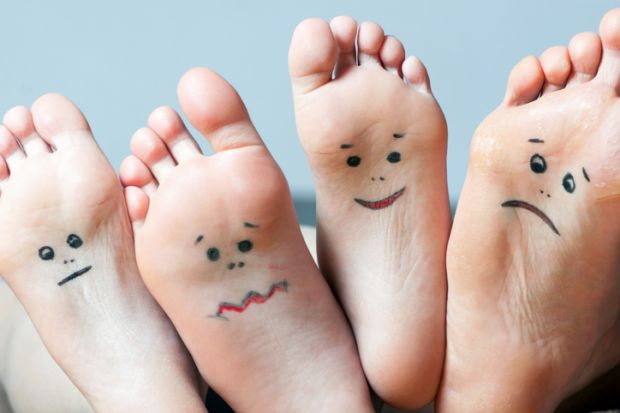Graduates in the UK have a greater sense of personal well-being and life satisfaction than those without a higher education qualification, according to a study.
When asked to rate measures of their well-being on a scale of zero to 10 (where zero means “not at all” and 10 means “completely”), graduates gave a mean score of 7.7 for life satisfaction and 8.0 for feelings of worthwhileness, compared with 7.4 and 7.7, respectively, for non-graduates. Graduates also reported being happier than those without a university qualification (7.5 compared with 7.3).
But although both groups gave the same mean score of 3.0 for anxiety, graduates tended on average to be more anxious than people whose highest qualification was an A level.
The analysis was based on the results of four questions included in the Office for National Statistics’ Annual Population Survey, which was conducted between April 2015 and March 2016. Overall, 107,350 respondents aged between 22 and 64 were included in the analysis, which was conducted by the Higher Education Funding Council for England.
On all four measures of well-being, the standard deviation of graduates’ responses was lower than non-graduates’, indicating that graduates are less likely to experience very low levels or very high levels of well-being.
The study also finds that increasing levels of university qualifications appear to have a diminishing effect on well-being; each additional qualification (eg, postgraduate certificate in education, master’s, doctorate) “adds a little less to the well-being score” than the previous qualification, according to the analysis.
The report, The Wellbeing of Graduates: Assessing the Contribution of Higher Education to Graduates’ Wellbeing in the UK, adds that graduates are also more resilient in the face of setbacks such as divorce, ill-health and unemployment than non-graduates.
For example, graduates with very poor health were 15 per cent less anxious than non-graduates with similarly poor health.
However, the difference in well-being between graduates and non-graduates within the same occupations is “usually indistinguishable from zero”, according to the report, although this may be explained by the fact that many jobs require higher education qualifications.
Madeleine Atkins, chief executive of Hefce, said that the analysis highlights the “broad positive effects that higher education has on an individual’s life”, which go beyond employability and income.
“It shows that the value for money of a higher education qualification extends to greater personal benefits and an increased sense of worth, which graduates carry with them long after they finish their studies,” she said.
Nick Hillman, director of the Higher Education Policy Institute, said that Hepi’s annual Student Academic Experience Survey has consistently found students to be “less happy and more anxious, on average, than both the rest of the population and young people overall”, but this new research is “important in confirming that higher education works out for most people most of the time”.
“Degrees have non-financial benefits alongside the boost in earnings from graduate-level jobs. People who go to higher education are, typically, more resilient. They generally have few reasons to regret obtaining a degree and more reasons to be cheerful,” he said.
Register to continue
Why register?
- Registration is free and only takes a moment
- Once registered, you can read 3 articles a month
- Sign up for our newsletter
Subscribe
Or subscribe for unlimited access to:
- Unlimited access to news, views, insights & reviews
- Digital editions
- Digital access to THE’s university and college rankings analysis
Already registered or a current subscriber?








